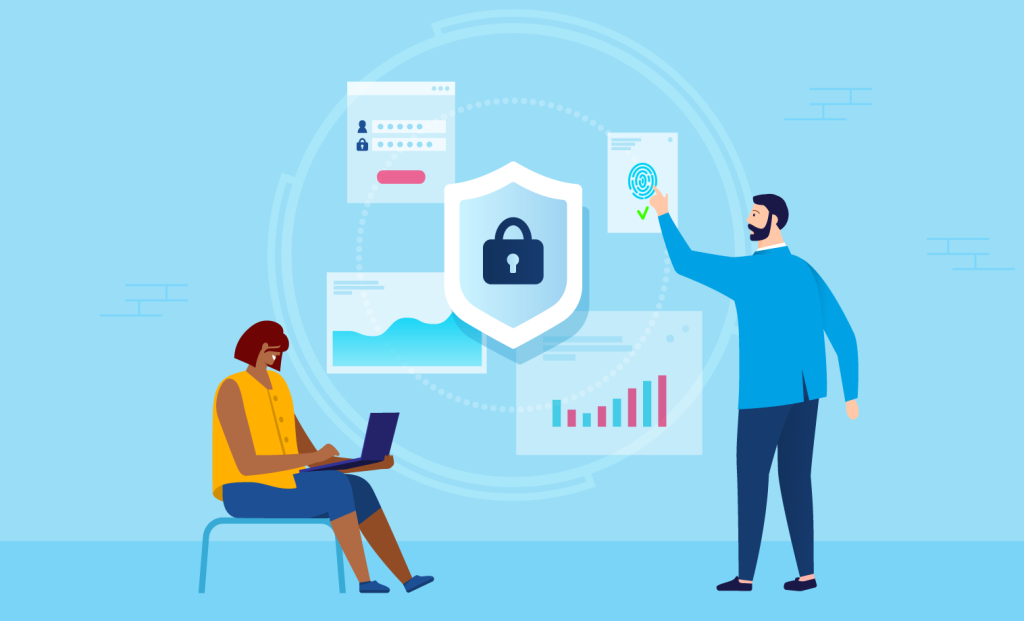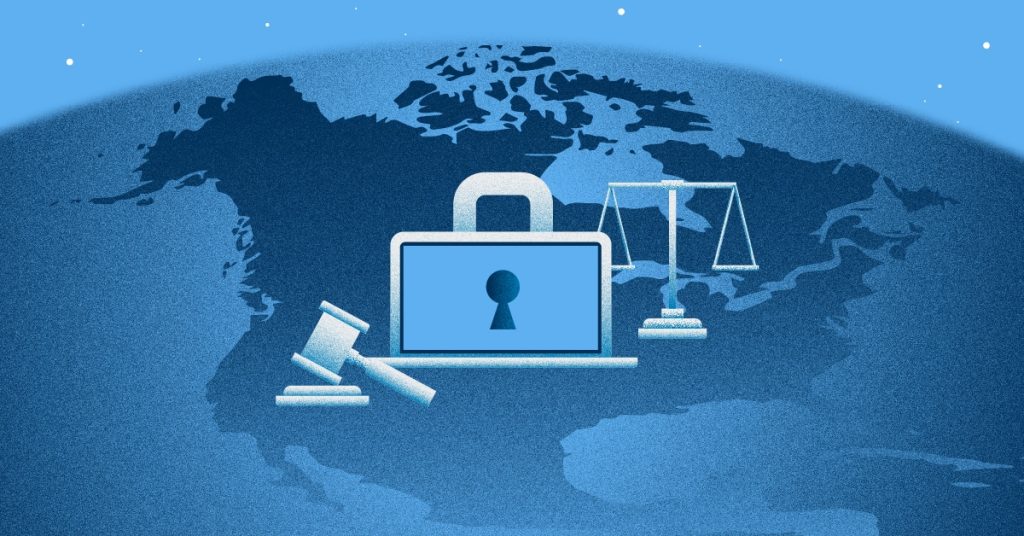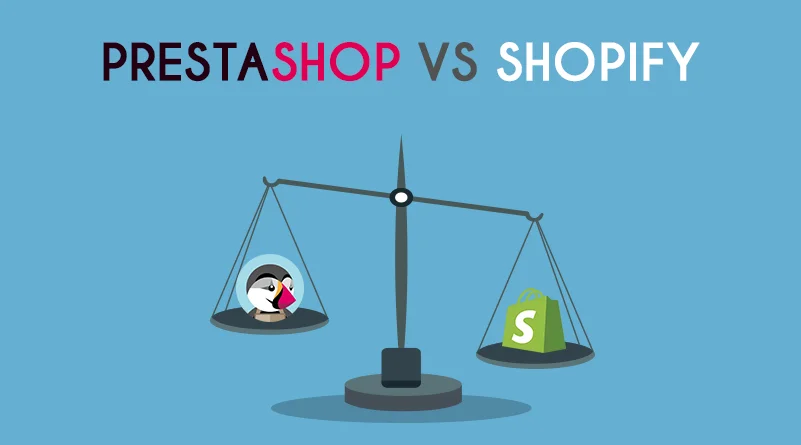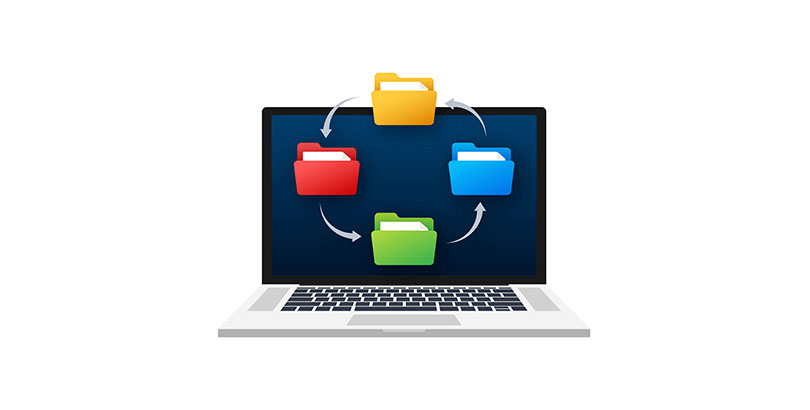Why Data Security Should Be a Priority for Startups
In today’s digital world, data has become one of the most valuable assets for any business. For startups in Kenya, where innovation and technology drive growth, protecting that data is not optional — it’s essential. Whether you’re building an eCommerce platform, a FinTech app, or an EdTech solution, every transaction, customer profile, and stored file carries value that must be safeguarded.
Unfortunately, many startups treat cybersecurity as an afterthought, focusing on product development or marketing instead. The truth is, a single data breach can destroy years of hard work, damage your reputation, and even lead to legal consequences. The smartest startups now understand that data security is not just an IT issue — it’s a business survival strategy.

Why Data Security Matters for Kenyan Startups
Kenya’s digital economy is booming. From mobile payments to cloud-based platforms, technology is helping businesses reach more customers than ever before. But this growth also attracts cybercriminals. The Communications Authority of Kenya (CA) reported over 300 million cyber threats detected in the 2023–2024 period, targeting both individuals and organizations.
For startups, the risks are even higher. Unlike large corporations, most small businesses lack the resources or teams to detect and prevent attacks early. A single phishing email, weak password, or unpatched system can open the door to hackers. Beyond financial loss, there’s also reputational damage — once users lose trust, it’s almost impossible to win it back.
When customers share personal data with your company, they expect it to stay private. That trust forms the foundation of your relationship. Losing it could mean losing everything.

Common Cyber Threats Startups Face
Understanding the risks is the first step to staying protected. The following are some of the most common cyber threats facing startups in Kenya today.
I. Phishing Attacks
These involve fake emails or messages that trick employees into revealing passwords or downloading malicious software. Even one careless click can compromise your entire system.
II. Ransomware
This type of malware locks your files and demands payment to unlock them. Many Kenyan SMEs have fallen victim to ransomware attacks that disrupt operations for days or weeks.
III. Data Breaches
Hackers may steal sensitive customer data — from financial details to login credentials — often selling them on the dark web.
IV. Insider Threats
Sometimes, the risk comes from within. Employees or contractors with access to data might misuse it intentionally or accidentally.
V. Weak Authentication Systems
Using simple passwords or failing to implement two-factor authentication (2FA) leaves systems vulnerable to brute-force attacks.
Knowing these threats helps you create a security-first mindset, even when your business is still small.

How to Strengthen Data Security in Your Startup
Data protection doesn’t have to be complicated or expensive. What matters most is building smart habits and systems early on.
Educate Your Team: Everyone in your startup should understand basic cybersecurity principles — from avoiding suspicious links to securing their accounts.
Use Strong Authentication: Implement multi-factor authentication (MFA) to add an extra layer of protection beyond passwords.
Encrypt Sensitive Data: Ensure customer data, financial records, and other sensitive files are encrypted both in storage and during transmission.
Regular Backups: Store your backups securely in the cloud or on offline drives. This ensures you can recover quickly if you’re hit by malware or a system failure.
Update Software Frequently: Always install security updates for your operating systems, apps, and plugins. Outdated software is one of the easiest ways hackers get in.
Use a Secure Hosting Environment: Partner with trusted cloud and web hosting providers who prioritize cybersecurity.
Create an Incident Response Plan: Know what to do in case of a breach — who to contact, how to recover, and how to communicate with customers transparently.
Building these habits early on sets your startup up for resilience as it grows.

The Role of Data Protection Regulations
Kenya has made major strides in data privacy through the Data Protection Act (2019). This law requires businesses to handle personal information responsibly, obtain consent before collecting data, and ensure its security.
Non-compliance can lead to penalties from the Office of the Data Protection Commissioner (ODPC), including fines and even suspension of business operations. For startups, understanding and following this law is crucial not only for legal reasons but also for earning customer trust.
Compliance demonstrates professionalism and transparency — qualities that investors and partners value deeply.

Why Partner with E-Startups Kenya
At E-Startups Kenya, we understand that a secure business is a successful business. Our solutions are designed to help startups and SMEs in Kenya protect their data while building digital systems that scale safely.
We provide:
I. Secure website and eCommerce development that includes SSL encryption and protected user data flows.
II. Cloud and CRM systems with built-in cybersecurity features to safeguard your business operations.
III. AI and automation tools that monitor and detect suspicious activity in real time.
IV. Data protection compliance support aligned with Kenya’s Data Protection Act.
V. Cybersecurity consulting and system audits for startups ready to scale securely.
By working with E-Startups Kenya, you get more than just technology — you get peace of mind knowing your data and your customers’ trust are protected.
FAQs
1. Why is data security important for startups?
Because startups handle sensitive data — from customer details to business information — that must be protected from breaches, theft, and misuse.
2. What happens if my startup suffers a data breach?
You risk losing customers, money, and credibility. It can also lead to fines under Kenya’s Data Protection Act.
3. Is data security expensive for small businesses?
Not necessarily. With good practices like encryption, regular updates, and secure hosting, startups can protect themselves cost-effectively.
4. How can E-Startups Kenya help improve my security?
We provide secure web systems, cloud storage, and data compliance tools tailored for Kenyan startups.
5. Does Kenya have a data protection law?
Yes, the Data Protection Act of 2019, enforced by the ODPC, regulates how businesses collect and handle personal information.
Conclusion
In the digital age, trust is currency — and data security is what protects it. For Kenyan startups, prioritizing cybersecurity is not just about avoiding risks; it’s about building credibility, investor confidence, and customer loyalty.
Every great business begins with trust, and that trust starts with protecting data. If you want to build a startup that’s both innovative and secure, partner with E-Startups Kenya. We’ll help you design, develop, and protect digital systems built to grow safely and sustainably.
E-Startups Kenya — secure tech, strong business.




























